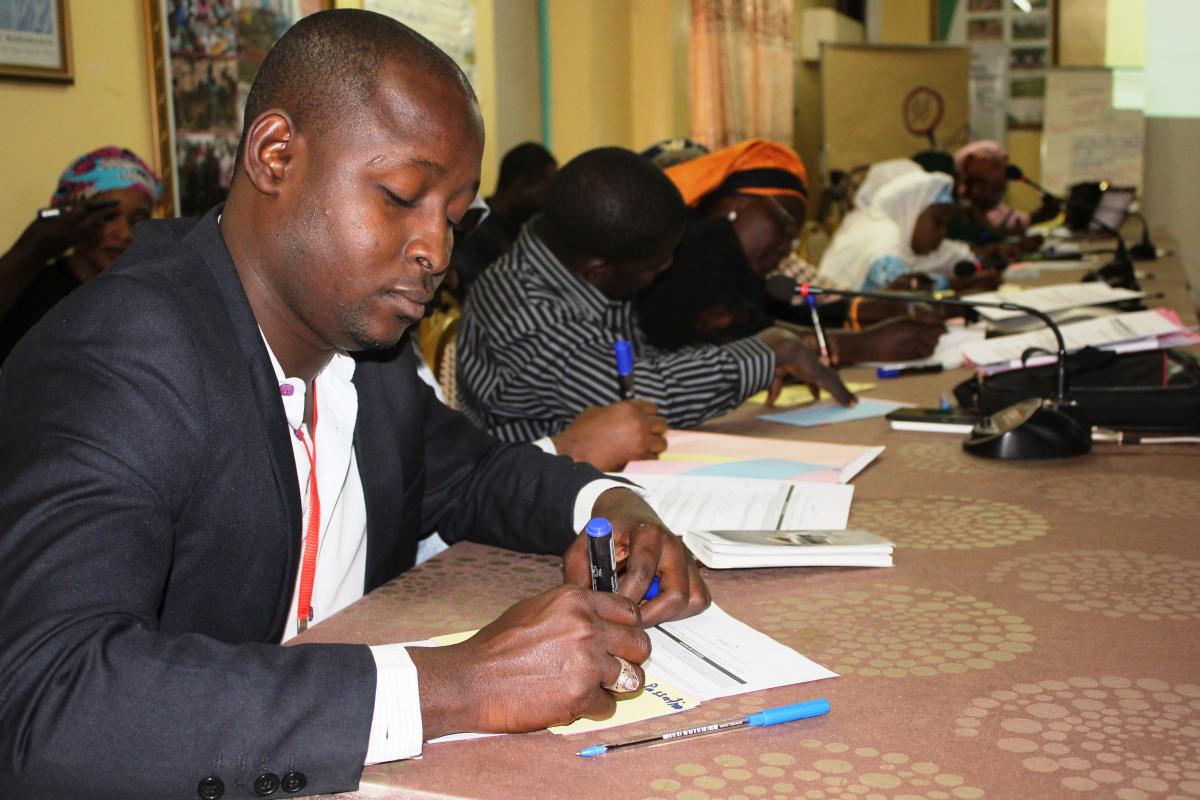Rechercher
Affichage de 2385 à 2400 sur 3114 actualités
-

VET Toolbox YEAR 1!
Thibaut MONNIER | 18/02/2019
During its first year in operation, the VET Toolbox has:DEVELOPED A FIVE YEAR BUSINESS PLAN which prioritizes demand-driven VET in developing countries;ADVISED 9 organizations in 7 COUNTRIES in private sector involvment, inclusiveness and evidence-based policy making in VET;BUILT a strong and innovative partnership between 5 European leading Agencies PRODUCED its first tool on management of training institutions;LAUNCHED a 4 million EUROS call for proposals on inclusion in VET;DEVELOPED a brand new website sharing knowledge, stories and best practices in VET OFFICIALLY LAUNCHED the VET Toolbox in Belgium, Ghana, Senegal, Mali and Vietnam;CO-ORGANIZED a regional seminar involving more than 100 participants from 18 African countries.Read more on https://urlz.fr/8Vrc
-
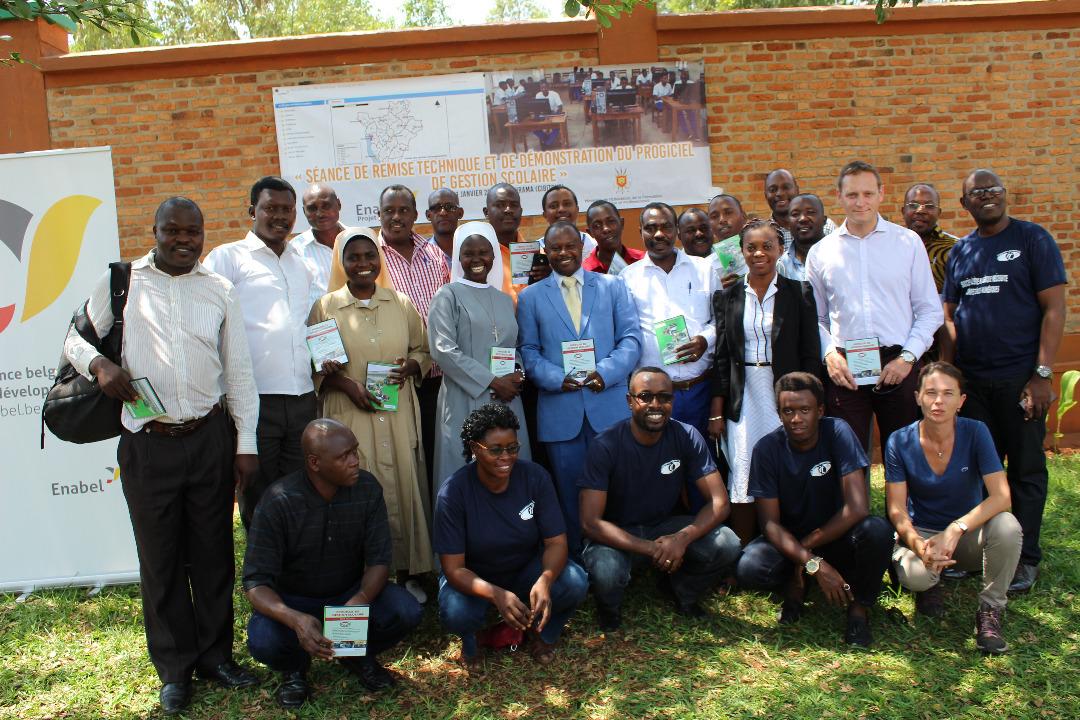
Lancement du Progiciel de Gestion Scolaire (PGS) au profit de 13 Centres d’Enseignement des Métiers (CEM)
Etienne RODENBACH | 12/02/2019
http://www.iwacu-burundi.org/enabel-pour-une-gestion-scolaire-efficace-des-cem/ L’Agence belge de développement (Enabel), à travers le projet Appui Complémentaire à la Formation Technique et Professionnelle (ACFPT) vient de lancer un Progiciel de Gestion Scolaire (PGS) au profit de 13 Centres d’Enseignement des Métiers (CEM). Les directeurs de ces centres se frottent les mains. Des rapports en un clic, la transparence de toutes les activités, des services désormais rapides… les Centres d’Enseignement des Métiers(CEM) se targuent d’une gestion scolaire dorénavant automatique et efficace. Ce Progiciel de Gestion Scolaire (PGS) a été lancé jeudi 31 janvier 2019 à Karurama dans la province Cibitoke en présence des directeurs des CEM bénéficiaires. Développé au profit de 13 CEM soutenus par Enabel, le PGS est un outil numérique complet pour l’administration et la gestion intégré du centre. Il a été développé pour permettre aux responsables d’un centre scolaire d’avoir la maîtrise permanente et totale de la gestion des activités principales du centre, d’après le représentant adjoint d’Enabel, Etienne Rodenbach. Ce système contribue de surcroît à aider les directions des centres appuyés par le projet ACFPT à s’acquitter de leurs devoirs et responsabilités d’une manière transparente. Cette application a été conçue en tenant compte des contraintes du système éducatif de l’enseignement technique et professionnel. Il obéit à deux contraintes majeures : l’efficacité et la simplicité. Dans son ensemble, le progiciel comprend huit modules : modules de gestion des élèves ; Modules de gestion d’insertion des lauréats ; Modules de gestion de ressources humaines ; Modules de gestion de stock ; Modules de gestion financière ; Modules des infrastructures et équipements techniques ; Modules de gestion des ressources numériques ainsi que la gestion de livraison de matériel. Des directeurs des CEM soulagés Les responsables des CEM bénéficiaires se frottent les mains. Ils parlent d’un progiciel qui va rendre les activités faciles et rapides dans leurs établissements. C’est un directeur du CFP Karurama satisfait, rencontré dans son bureau lors d’une visite de ce lancement technique. Devant son ordinateur, il semble maîtriser le progiciel. « J’ai entre les mains toute la situation du centre. Je n’ai pas besoin de demander les données au secrétaire », lance-t-il, l’air satisfait. Si un employé a besoin du matériel ou d’un congé, poursuit-il, inutile de se déplacer. Il l’écrit dans le progiciel et les concernés le voient directement. « Je ne fais qu’approuver ou rejeter sa demande». Une technique qui, selon lui, permet de réduire les dépenses. « Avant, il fallait écrire ou remplir les formulaire à imprimer… » Même son de cloche chez le directeur du CFP Rumonge, Gaspard Nibaruta. Avant la conception de ce progiciel, témoigne-t-il, la gestion du personnel était difficile. « Ce progiciel va nous permettre de contrôler les retards et absences des enseignants et des élèves. » De surcroît, la gestion financière sera désormais facile et transparente. « Il n’y aura plus de détournements. Le comptable ne pourra plus faire une dépense à l’insu de la direction. » Ces directeurs indiquent que la plupart des chefs de service de leurs centres savent déjà utiliser ce progiciel. Ils évoquent toutefois quelques défis : les ordinateurs sont insuffisants. Certains chefs de service ne savent pas manier l’ordinateur. La connexion internet pour synchroniser les données est quelque fois limitée. La Direction générale applaudit Le Directeur général de la formation technique et professionnelle, Pascal Nshimirimana, n’a pas caché sa satisfaction. Pour lui, les rapports étaient un casse-tête. Il fallait se déplacer à l’intérieur du pays pour s’enquérir de la situation. Il indique que les rapports lui parvenaient très difficilement, très tardivement. Le représentant adjoint d’Enabel parle d’un progiciel qui offre une meilleure gestion des Centres de formation. D’après lui, les Centres de formation envoyaient leurs rapports par courrier dans des véhicules de transport avec risque de disparaître. A cause de ces difficultés, les rapports étaient trimestriels alors qu’ils devraient être hebdomadaires. « Mais avec ce progiciel, tout est automatisé. Tout est sous contrôle. Il suffit de me connecter au PSG dans ma machine pour voir tout ce qui se passe dans ces 13 CFP. » M. Nshimirimana loue un outil digital qui permet une gestion transparente et intégrée des CEM chaque jour. « Plus de magouilles, de malversations…tout est transparent. » D’après lui, les présences des enseignants et des élèves sont désormais contrôlés. Et de rassurer qu’il va plaider auprès du gouvernement pour étendre ce progiciel dans tous les Centres de formation du Burundi. Ce progiciel a été conçu dans le cadre du projet « Appui complémentaire à la formation professionnel et technique (ACFPT) » qui date de plus de 4 ans, d’après le représentant adjoint d’Enabel. « Il nous est apparu très important de concevoir ce logiciel », indique M. Rodenbach. Deux objectifs majeurs à l’origine : une meilleure gestion de tous les différents aspects du centre et la centralisation de toutes les données. « Car dans ce secteur, l’on a souvent du mal à quantifier les activités. »
-

Call for proposal - Climate Smart Agriculture
Jasper VLIERS | 08/02/2019
Wehubit launches a new Call for Proposals focused on digital solutions to increase Climate Smart Agriculture. Are you a non-profit organisation located in one of the 14 partner countries of the Belgian Development Cooperation? Are you interested in Climate Smart Agriculture? Submit your project via www.wehubit.be.
-
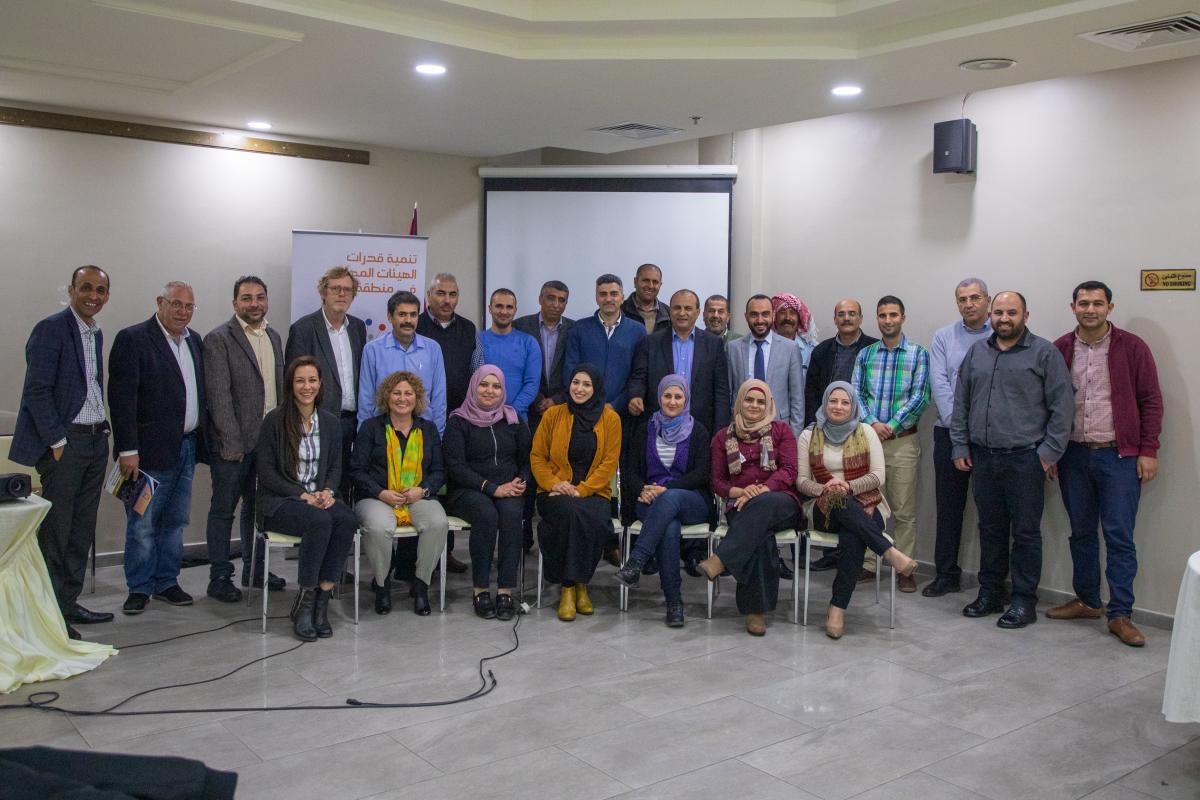
Barta'a presenting the first results of the ARD intiative
Laura SCHILLEMANS | 04/02/2019
The Barta’a Cluster organized a two-day workshop in Jericho, as part of the ARD (Area Resilience and Development) initiative Laboratory meetings, during which every partner cluster presents their progress, lessons learned, challenges and accomplishments to the other partner clusters. The workshop started with an introduction from the Barta’a’s communities on the challenges they face and the results they expect from the ARD (Area Resilience and Development) initiative. Then, the youth and the women of Barta’a gave a presentation on the community activities they are preparing to help implement the ARD initiative in the cluster. The first day ended with an overview of the achievements of the initiative up until now, and a view of their 2019 action plan. On the second day of the workshop, the cluster discussed the MOU (Memorandum Of Understanding) that defined the roles of and relationships between the communities of the cluster, during and after the initiative. This activity is part of the ARD (Area Resilience and Development) Initiative, as part of the Local Government Reform and Development Programme, implemented by the Ministry of Local Government and The Municipal Development and Lending Fund and funded by the Government of Belgium through Enabel, the Belgian Development Agency.
-
Convenio Perú – Bélgica ha permitido que familias de zonas vulnerables del Perú cuenten con el Seguro Integral de Salud
Guido COUCK | 31/01/2019
El trabajo conjunto entre el Seguro Integral de Salud, Superintendencia Nacional de Salud, Ministerio de Salud y Programa Nacional PAIS y Cuna Más del Ministerio de Desarrollo e Inclusión Social ha permitido establecer una red articulada para promover el Aseguramiento Universal en Salud en el Perú.San Martin, Cajamarca, Junín, Huancavelica y Piura fueron las regiones de intervención del Programa.Lima, Enero 2019.- Con una inversión de 16,500 millones de euros, el gobierno del Perú en alianza con el Reino de Bélgica, pusieron en marcha el Programa de Apoyo a la Política de Aseguramiento Universal en Salud en Perú a través del SIS (SISTEC) implementado por la Agencia Belga de Cooperación (CTB) y el Seguro Integral de Salud (SIS), con el financiamiento de la Cooperación Belga, que tiene como objetivos principales promover el aseguramiento universal en salud en regiones de pobreza y pobreza extrema, ampliar la cobertura de beneficios, mejorar la calidad de los servicios de salud y fortalecer el Seguro Integral de Salud.Según cifras del Instituto Nacional de Estadísticas e Informática (INEI) de 2017, el 21.7% de peruanos vive en situación de pobreza, hecho que impide o limita el acceso de estas personas a los servicios básicos como el aseguramiento de la salud, ya sea por el aislamiento geográfico, barreras culturales, desempleo, entre otros factores.Resultados obtenidosA cinco años de haberse ejecutado el proyecto, el martes 22 de enero, el SISTEC presentó los resultados del programa con la presencia de miembros del SIS, MINSA, SUSALUD, la Cooperación Belga, ESSALUD, entre otros.Entre los principales resultados el SISTEC ha hecho posible:La cobertura del SIS ha aumentado de 13 millones en el 2003 a 17,867,077 2018.Familias en situación de pobreza y pobreza extrema de 05 regiones del país acceden a un servicio de salud de mejor calidad, con enfoque de género e interculturalidad.Más de 50 mil nuevos afiliados gracias a la creación e implementación 14 oficinas de Atención al Asegurado del SIS (OAA) a nivel nacional. Además de afiliar, estas oficinas resuelven consultas, dudas o reclamos del asegurado, hecho que ha logrado mejorar la calidad de vida de miles de personas.El SISTEC ha logrado mejorar la gestión en salud y entre los principales resultados se cuenta con soluciones informáticas para automatizar los procesos del SIS.25 IPRESS (centros de salud) piloto han implementado planes de mejora para la atención al asegurado/a.Se ha brindado capacitación a más de 2 mil profesionales de salud en habilidades gerenciales y blandas.Se ha capacitado a más de seis mil personas de las cinco regiones en empoderamiento y derechos en salud para que conozcan cómo acceder a una atención médica de calidad, cuáles son los beneficios y cómo atenderse.Además se ha formado una red de 767 personas líderes/as comunitarios, gestores/as de tambos, asesores/as comunitarios en salud de 04 de las 05 regiones de intervención, quienes han sido fortalecidos como formadores/as en derechos y deberes en salud con un enfoque participativo de educación popular. 24 tambos de la región de Huancavelica son Puntos de Digitación, donde se brinda asistencia técnica, orientación sobre afiliación al SIS, canales de reclamo, derechos y deberes en salud, y todo lo concerniente a la cultura de aseguramiento.Aporte belgaEl embajador de Bélgica en Perú, Koenraad Lenaerts resalta que se ha logrado alcanzar los objetivos trazados hace cinco años. “El sector salud es muy importante para la Cooperación Belga, gracias al trabajo articulado con el Sistema Integral de Salud, se ha logrado desarrollar un sistema eficiente y sostenible, garantizando la atención médica de calidad para todos los peruanos y peruanas. Nos orgullece transferir estos conocimientos y resultados al Perú”, expresó el diplomático.Por su parte, la jefa del Seguro Integral de Salud, Dra. Doris Lituma Aguirre, declaró que a partir del 2013 las afiliaciones al SIS han incrementado de 13 millones a más de 17 millones al 2018. “Pero, además de ampliar la cobertura, nos hemos preocupado por empoderar a la población para que conozcan sus derechos a una atención médica de calidad y capacitar a los profesionales de la salud para mejorar la calidad y atención al asegurado”, señaló.Finalmente, la Ministra de Salud, Zulema Tomás, destacó la importancia de establecer una cultura de aseguramiento y empoderamiento de los asegurados para que sepan cuáles son sus derechos, los ejerzan y los defiendan.Red de CompromisosPara materializar la unión de todos los socios participantes del SISTEC mediante se realizó un acto simbólico para establecer una red de compromisos. Esta alianza representa el trabajo articulado multisectorial e intergubernamental desarrollado para promover el Aseguramiento Universal en Salud en el Perú.Con ello se expresa el compromiso que asume cada uno de ellas en continuar el trabajo realizado desde el Programa SISTEC, implementado por la Agencia Belga de Desarrollo (CTB/Enabel) en co-gestión con el Seguro Integral de Salud con el financiamiento de la Cooperación Belga, en favor de las poblaciones más vulnerables del país.Esta red fue conformada por el Embajador de Bélgica, Excmo. Sr. Koenraad Lenaerts, el Representante residente de la Agencia Belga de Desarrollo (CTB/Enabel) Sr. Patrick Gaudissart, la Jefa del Seguro Integral de Salud, Dra. Doris Lituma, la Jefa de la Oficina de Cooperación Internacional del Minsa, Dra. Wieslawa De Pawlikowski, la Directora de OFICOR de Susalud, el Coordinador Técnico del Programa Nacional PAIS del MIDIS, Sr. Jorge Ibañez y el líder awajún y facilitador del Programa Nacional Cuna Más del MIDIS, Sr. Pancho Tanques.
-
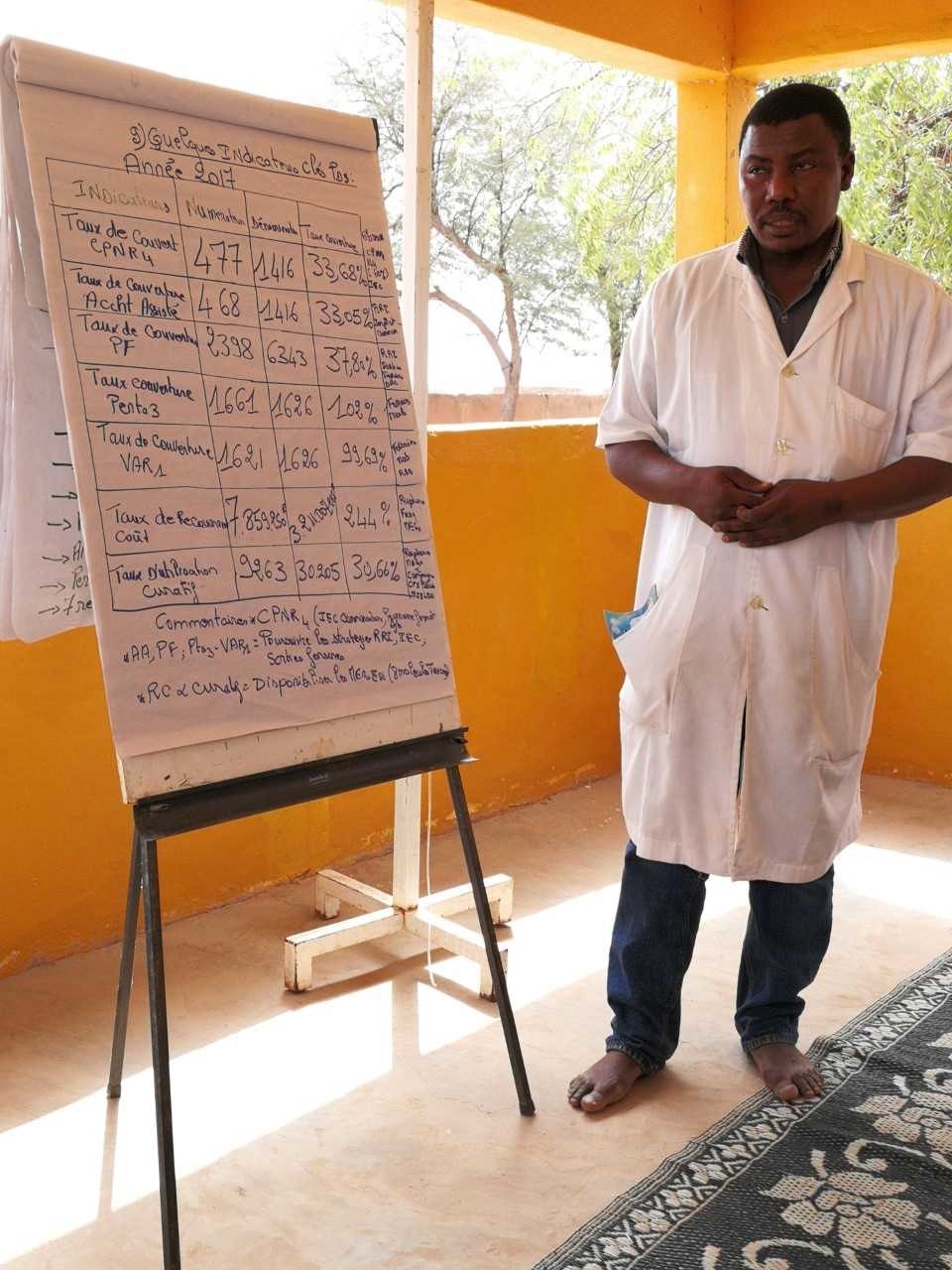
Le financement basé sur les résultats, première étape vers la mise en oeuvre de la couverture universelle de santé
Céline MEWISSEN | 30/01/2019
Le programme d'appui au système de santé a pour objectif d’améliorer l’accès des populations aux soins de santé primaires de qualité par la mise en oeuvre graduelle de la Couverture Universelle de Santé (CUS). Dans un premier temps, il mettra en place, en collaboration avec la Direction Régionale de la Santé Publique (DRSP) et l’Equipe Cadre de District (ECD), une Agence de Financement Basé sur les Résultats chargée du suivi mensuel des performances atteintes par chaque formation sanitaire, de la rétribution directe à chacune d’elles en fonction des performances atteintes et enfin de l’accompagnement technique des formations sanitaires dans l’utilisation de ces ressources (salaire du personnel médical, dépenses de fonctionnement, primes de motivation, etc.). Dans un deuxième temps, le PASS prévoit d’utiliser la mise en place du Financement Basé sur les Résultats, notamment l’expérience de l’Agence Départementale FBR, pour passer à une Agence Départe-mentale d’Assurance Maladie Universelle (AMU). Celle-ci inclurait les fonctions de : financement direct des prestataires ; prise en compte de la demande (la voix de la communauté sur la qualité des soins reçus) ; contrôle de la qualité technique des prestations ; gestion des adhérents à l’AMU et de l’utilisation de leur cotisation. On voit bien qu’il s’agit de reprendre les fonctionnalités du FBR en les amplifiant avec l’inclusion de la Demande et des adhérents à l‘AMU. Le chemin pour arriver à une couverture universelle de santé cou-vrant toute la population sera long. Le PASS a comme objectif d’aider le Ministère de la Santé Publique à faire les premiers pas dans les deux districts sanitaires appuyés (Gaya et Gothèye) couvrant plus de 500.000 habitants. En savoir plus : Le mécanisme de Financement basé sur les résultats La stratégie de financement basé sur les résultats (FBR) vise à augmenter la quantité et la qualité des soins préventifs et curatifs fournis à la population à travers la rétribution directe de la performance de chaque forma-tion sanitaire. Cette rétribution est effectuée sur la base d’un contrat de performance entre une partie qui paye (l’Agence Départementale du FBR) et une partie qui fournit les soins (les prestataires : Hôpital de district et le réseau de Centres de santé Intégrés-CSI).
-
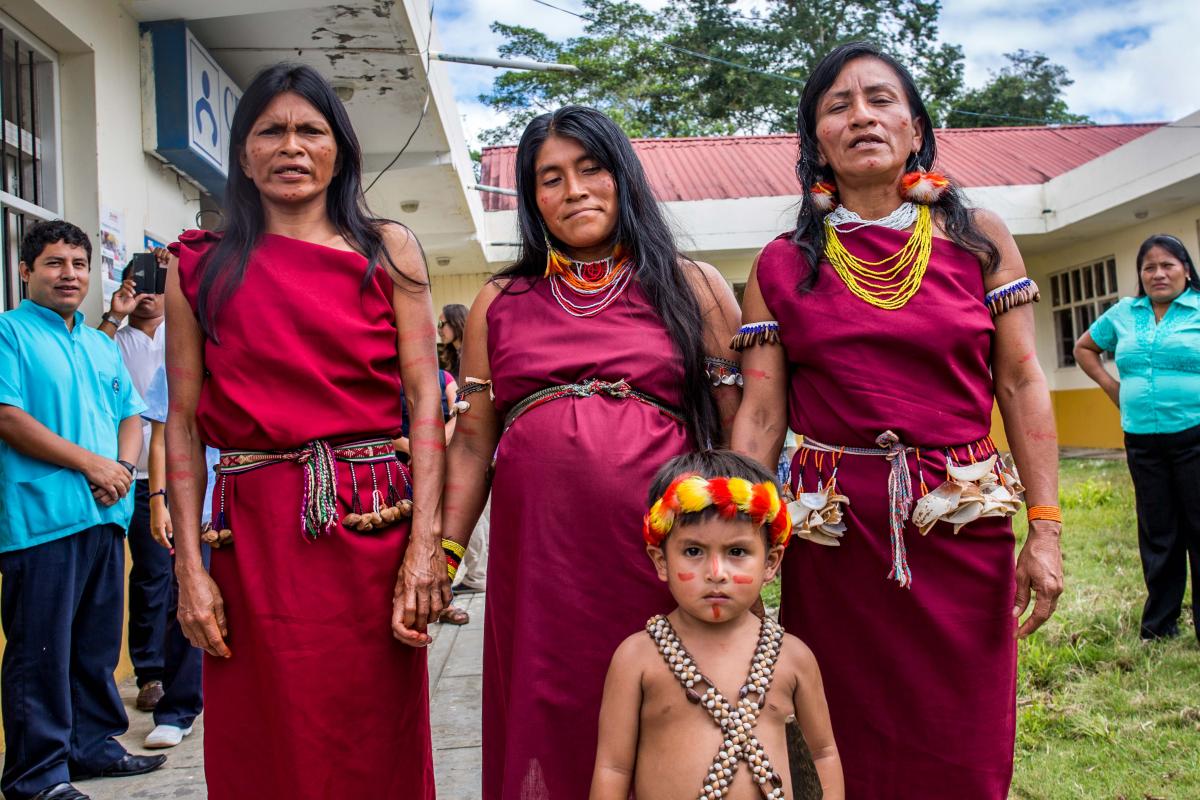
Resultados del SISTEC
Guido COUCK | 30/01/2019
Evento Experiencias de Aseguramiento en Salud basadas en evidencias: Hacia un Perú con Aseguramiento Universal en Salud (AUS)https://www.youtube.com/watch?v=TyO9wiC62Vo Resumen evento protocolar- Evento de Presentación de Resultadoshttps://www.youtube.com/watch?v=5z9vpM_MBHg Entrevista de Patrick Gaudissart sobre Programa SISTEC en Canal Nhttps://www.youtube.com/watch?v=KJ2XEla75YE
-
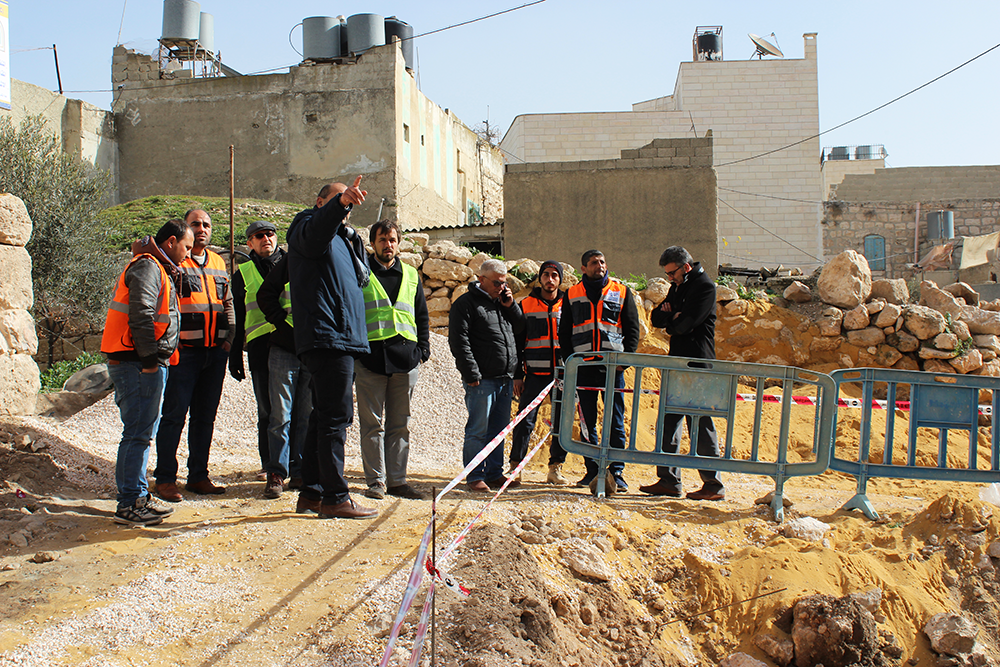
Field visit to Al Samu
Laura SCHILLEMANS | 28/01/2019
Last week, the Enabel team visited the construction works at Al Samu where the Regeneration of Historic Centers Program is rehabilitating the area. The “Hosh Ajwa” building is being restored to install a “one-stop shop”, housing the post office and property tax office. The “Al Ratrout” and “Al Daghamim” Hosh buildings will be used as a showroom, a gift shop, a translation center, a training center, and a library. A separate space will be allocated for kids to receive training courses and enjoy fun activities. ----------------- The Regeneration of Historic Centers program is implemented by the Ministry of Local Government and the Municipal Development and Lending Fund, in cooperation with the Ministry of Tourism and Antiquities, and funded by the Belgian Government through Enabel, the Belgian Development Agency.
-
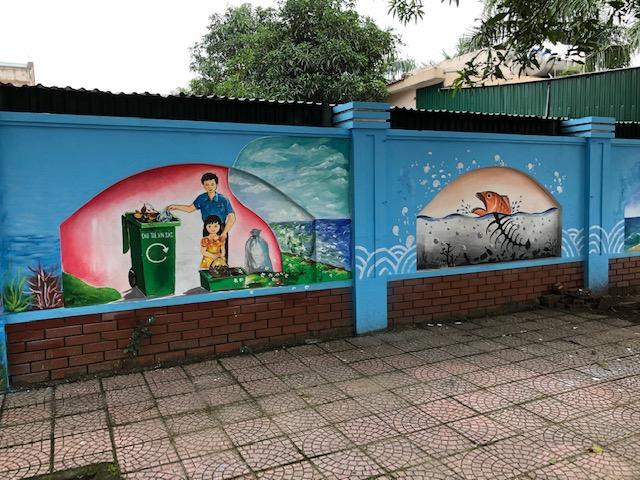
Youth Union in Cuo Lo town created fine interactive mural on environmental protection
Marion FISCHER | 28/01/2019
The Youth Union groups of Cua Lo town, jointly with students of the art school, painted more than 20 mural pictures, which describe the dangers of environmental pollution for the coast line and the economic and social life of the people. The pictures want to arouse the attention and care of the town people and the thousands of tourists in Cua Lo for a healthy environment. It is suggested to develop the site into a tourist visiting place and a means for conducting environmental education with school children and locals. Some of the pictures are very frank in their criticism of dangerous practices imposed on the environment by the foreign-invested big industrial enterprises.
-
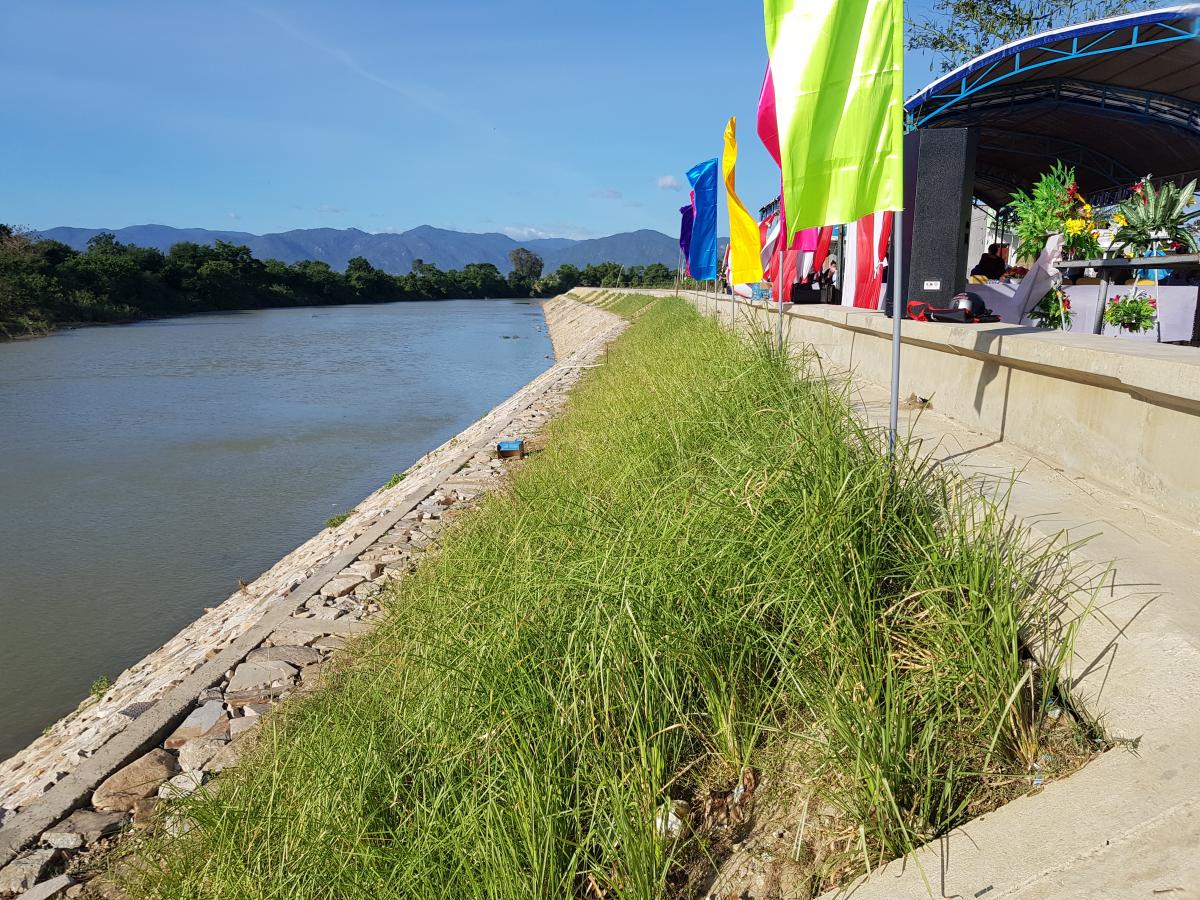
Belgian Ambassador at Inauguration Ceremony for River Bank Works in Binh Thuan
Ian WOOD | 24/01/2019
On 10 January 2019, the Provincial People’s Committee of Binh Thuan had the great honor to welcome Mr Paul Jansen, Ambassador of the Kingdom of Belgium, for the inauguration ceremony for completion of works to strengthen the embankment of the Luy River in Phan Thanh commune, Bac Binh District. The construction which helps to stabilize the river banks and reduce erosion risk was implemented under the Belgium-funded project of “Integrated water resource management and urban planning related to climate change in Binh Thuan Province”. Climate change and its contribution to flooding and river bank erosion are significant issues in Binh Thuan and this area along the Luy river in Ca Dien hamlet of Phan Thanh commune in Binh Phuoc hamlet of Cho Lau town were identified as high-risk for river bank instability. To prevent further erosion and to protect adjacent houses and valuable agricultural land construction works were implemented to protect 330m of river bank at Ca Dien Hamlet and 250m at Binh Phuoc. Implementation of the works was managed by the Project Coordination Unit of the Binh Thuan project along with the support of Enabel, the Belgian Development Agency.The ceremony was hosted by Mr Le Tuan Phong, Deputy Chairman of the provincial People’s Committee and attendance included representatives from the province’s departments and agencies, district and commune leaders and many local inhabitants who are the beneficiaries of the works.The total investment was 567,000 euro from Belgian funds and another 76,600 euro from other sources. Construction work consists of 330 metres of river embankment in Canh Dien hamlet and 250 metres in Cho Lau town. The construction includes concrete and rock reinforcement of the river bank plus a concrete road to enhance all-weather access. As a cost-saving measure and to enhance the aesthetics, the design incorporates reinforced vegetation sections at the top of the bank using Vetiver grass. This grass is known to be very resistant to erosion and this innovation provides demonstration of its effectiveness to provide a greener alternative for river protection works. When in operation, this project will help reduce erosion at the Luy river and protect people’s houses and crops. It will also help improve the travelling situation of the local residents, and protect the environment along the river. The works at Ca Dien Hamlet provide protection to 60 houses and the works at Binh Phuoc Hamlet provide protection to 40 houses. In total, the work will benefit about 3,000 residents, of whom 1,000 are living in the area nearby the work, and the other 2,000 are inhabiting the surrounding areas.
-
Le renforcement des capacités individuelles comme tremplin vers le développement socio-économique
Céline MEWISSEN | 21/01/2019
L’intervention renforcement des capacités (IRC) vise à accroître les performances des acteurs des secteurs de la santé et de l’élevage afin de contribuer efficacement au développement desdits secteurs. Elle vient en appui aux deux nouveaux programmes mis en oeuvre par Enabel : PASS et PRADEL. Le groupe cible de l’intervention comprend les acteurs étatiques, le secteur privé et les organisation de la Société Civile (OSC) pouvant influencer le développement dans les secteurs de la santé et de l’élevage.L’intervention IRC se base sur une approche novatrice pour adresser les besoins en renforce-ment organisationnel et institutionnel. Elle part de l’hypothèse qu’encourager les différents groupes d’acteurs dans leur performance organisationnelle, en se basant sur leurs rôles et fonctions respectifs, conduit à long-terme au développe-ment socio-économique.La porte d’entrée pour le renforcement des capacités est l’organisation qui est considérée comme «le moteur» du développement. Il s’agit de prendre sous la loupe les capacités institutionnelles et organisationnelles existantes, pour déterminer les capacités individuelles qui sont à renforcer afin de développer l’organisation. L'organisation est donc considérée comme un « capteur » de capacités individuelles afin de les transformer en performance organisationnelle.Le processus de renforcement procédera par analyses organisationnelles qui seront traduites en cartes de performances sur base desquelles seront élaborés des plans de renforcement des capacités (RC). La mise en oeuvre des activités de renforcement découlera d’une consolidation préalable en vue d’avoir une plus grande économie d’échelle. Cette consolidation prendra en compte les thèmes transversaux et prioritaires à savoir le genre, l’approche basée sur les droits humains, le changement climatique et la digitalisation.L’IRC vise également le développement d’initiatives innovatrices par des alliances stratégiques autour des thèmes spécifiques contribuant au développement des deux secteurs (élevage et santé). Il est attendu que le renforcement de capacités individuelles et les initiatives innovatrices puissent avoir un impact sur la performance des acteurs et sur la réalisation des objectifs sectoriels.
-
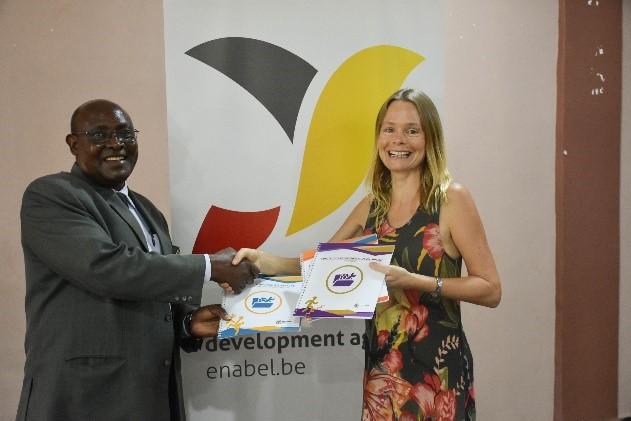
Enabel Provides Pedagogical Support to the National Teachers' Colleges
Dorothy KYAMAZIMA | 21/01/2019
The Teacher Training Education project continues to provide pedagogical support to improve the quality of teaching and learning within the NTCs. This time around the support is in the form of a set of guidelines that serve as essential tools to contribute towards preparing qualified and competent teachers. 600 copies of these guidelines and toolboxes were disseminated through-out the colleges and will be used by the NTC lecturers. These guidelines and toolboxes are categorized into three areas:·Continuous School Practice which is an innovative system that provides an opportunity for teacher trainees to get hands-on experience and teaching skills. CSP Guidelines: https://bit.ly/2Dp3cju CSP Toolbox: https://bit.ly/2FOUw7G Support Supervision System which targets the knowledge, skills, attitudes and practices of lecturers in order to improve their teaching and pedagogical roles in preparing qualified and able teachers. Support Supervision Guidelines: https://bit.ly/2R2eVZ8 Support Supervision Toolbox: https://bit.ly/2R5vvYd Continuous Professional Development System which supports continuous learning and training for teaching staff in NTCs to ensure that their professional skills and knowledge is advanced and incorporates up-to-date teaching styles relevant to providing quality education. CPD Guidelines: https://bit.ly/2DpDHyS CPD Toolbox: https://bit.ly/2T5NpMf
-

Enabel Launches an Electronic Vote Book Tool
Dorothy KYAMAZIMA | 21/01/2019
Enabel in partnership with the Ministry of Education and Sports launched a new Electronic tool with the aim of improving financial management across all 5 National Teachers’ Colleges in Uganda.The customized Excel Electronic Vote Book automatically extracts financial reports on a monthly basis and this encourages transparency in management of financial resources and enables accountability. This intervention is geared towards improving institutional development of National Teachers’ Colleges. Follow the link bellow to learn more: https://bit.ly/2Ef6Rmq
-
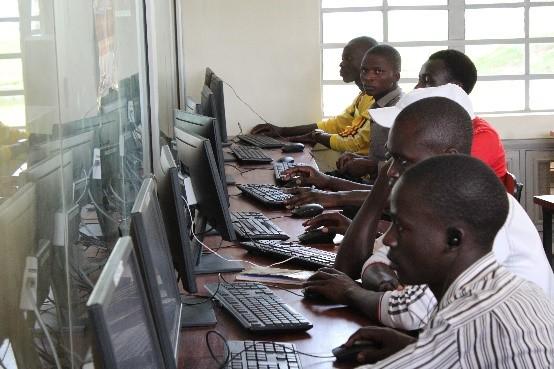
Integrating ICT in Teaching and Learning
Dorothy KYAMAZIMA | 21/01/2019
Information and Communication Technologies (ICT) has increasingly become an integral part of today’s education system and this is mainly because it has the potential to support many education functions such as teaching and learning, research, management and administration. Throughout the month of September 2018, the Teacher Training Education (TTE) Project equipped National Teachers’ Colleges with ICT equipment that is sure to improve teaching and learning within the classroom and provide more access to information for teacher trainees and NTC lecturers. These included: 46 computers, 26 laptops, 11 cameras, 61 tablets and 10 printers. This also included a library kit that comprised of printing and binding machines that were intended to back up the functionality of the library, making them more effective and capable of supporting both teachers and student’s needs. The TTE project in partnership with the Ministry of Education have taken steps aimed at fulfilling the long-awaited gap in relation to the shortages of ICT equipment in the Teachers colleges. The colleges are now in the right direction for enhancing the usage of ICT so as to promote its lecturers and students to fit in the 21st century with ease. Madame Ketra Lugumba the Assistant School Practice Officer at NTC Mubende had this to say. “The advent of Active Teaching and Learning in the colleges in 2014 is now being made a reality as it has received more enforcement particularly with the delivery of ICT equipment. With this, lecturers will be able to integrate ICT in teaching and learning for example in music when teaching ‘pitching’, the computer with a music software can give you the right pitching when going through a music ladder (d r m f s l t d’) and in Professionals Particularly Development Studies subject when teaching Neo colonialism the photographs of Kwame Nkurumah can be up loaded and shown to students to associate with the content being handled. ICT equipment will also ease typing at the college, facilitate easy administration of assignments, use the internet in daily lessons, facilitate self-learning, promote social networking, improved data storage (record keeping) and practical training. It also facilitates research undertakings and assessment, provides rich learning resources at the college with corresponding high outcomes as well as facilitating independent study efforts.” The college lecturers believe that Active Teaching and Learning will be consolidated further and run even more smoothly within the college with the purchase of ICT equipment and that it will produce high outcomes from both the teachers, students and surrounding communities.
-
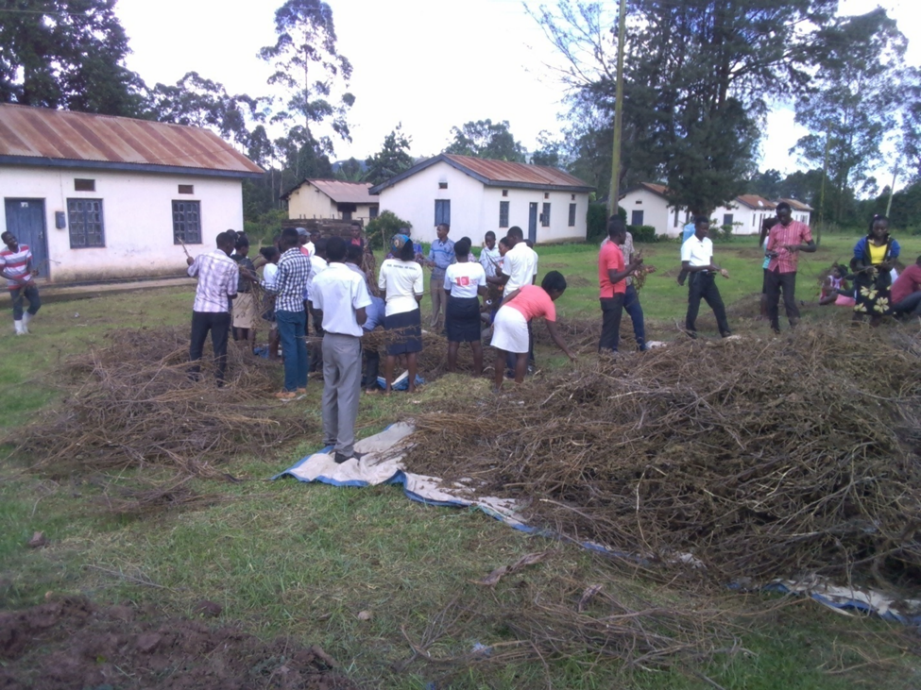
Investing in Pedagogical Projects for Teacher Development
Dorothy KYAMAZIMA | 21/01/2019
It has been observed that pedagogy can be enhanced outside the classroom and brought closer through student’s participation and practice in college projects. If the students are to participate in their own development and have a positive impact on the transformation of their communities as they grow, such projects are just the thing to expose them to the right experiences that will prepare them for action at all levels. With projects activities based on group levels, students can participate in different projects on daily basis and improve on their pedagogic skills. National Teachers’ College (NTC)Kabale has embarked on integrating pedagogic projects into their teaching process for the development of teacher practical skills and sustainability. These pedagogical projects include the usage of drip irrigation in farming, preparation of terraces and manufacturing organic manure after harvesting. Through this, students are exposed to practical experiences relevant to improving their skills which is suitable for their education. Students are also empowered to transform their communities by deriving appropriate solutions to community challenges through inculcating creativity and entrepreneurial skills to initiate and manage projects that are economically viable. Students are being taught skills which will transform them into trainers of other students and communities around the college and beyond. They are equipped with field research that can allow them to write research findings from real life practice and usage of scientific procedures. This pedagogic approach will not only contribute to clear understanding of basic research principles but will also in future guide students into opportunities of making professional choices in arts and sciences based on skills attained as well as teaching. It is intended that these projects will be run as enterprises for profit motive, so that the learners leave the college with minds of entrepreneurship, creativity and business innovation. It is expected that the initial capital will sustain the projects and also generate income continuously. The lessons learnt from these projects will enrich student’s knowledge and skills in handling their final examination especially in the area of field work projects and thereafter in teaching.
